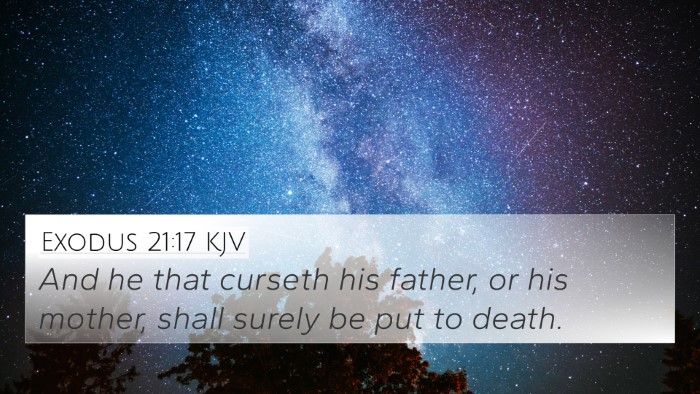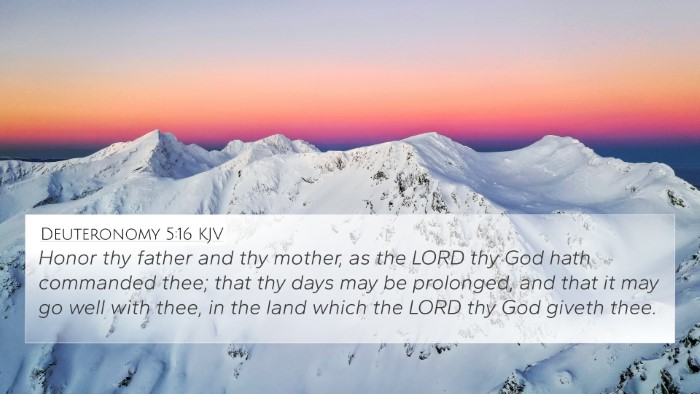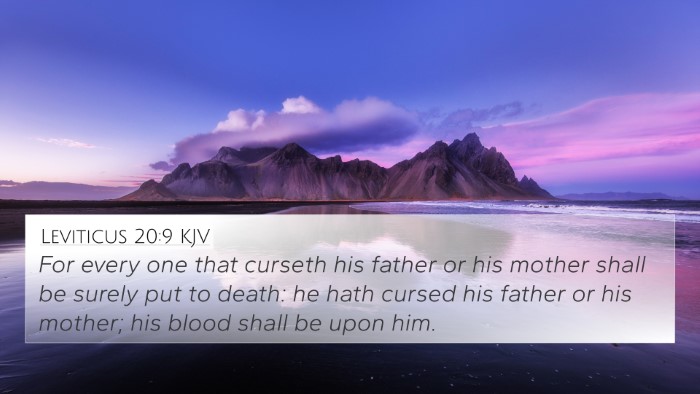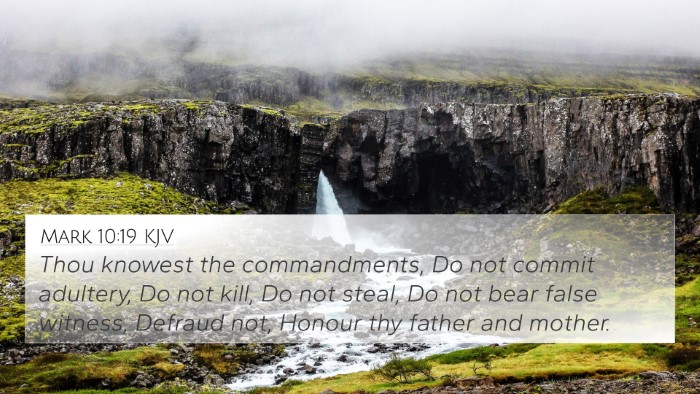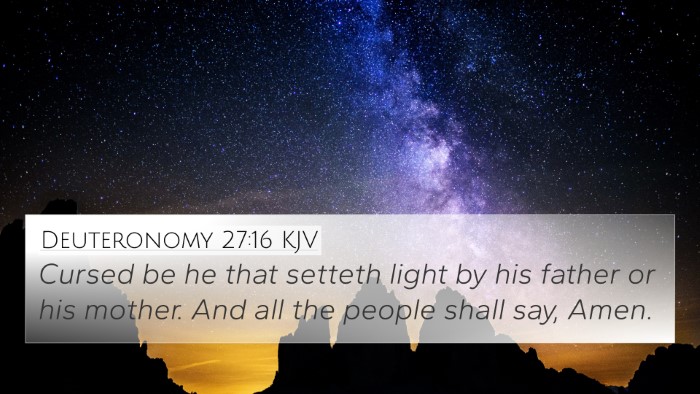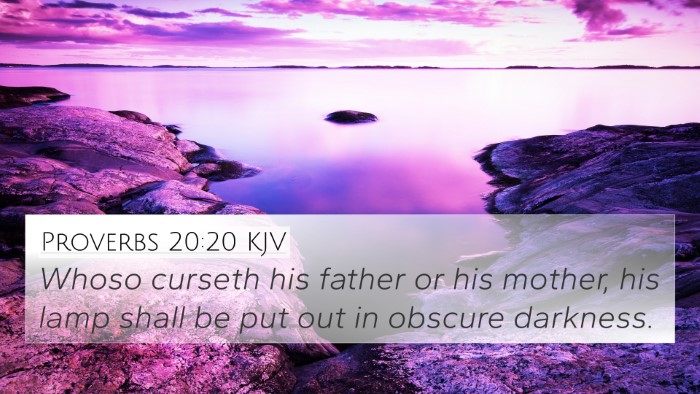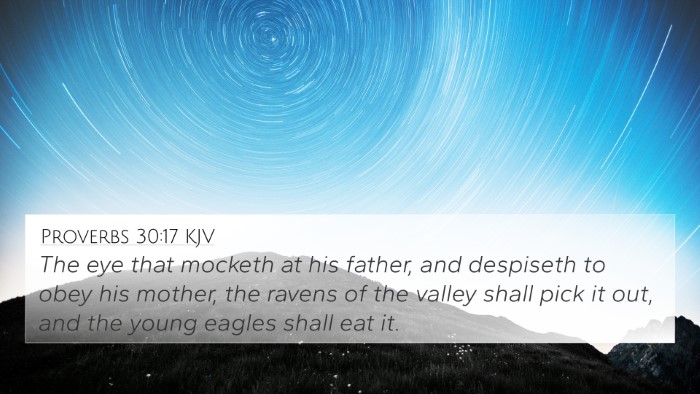Meaning and Interpretation of Mark 7:10
Mark 7:10 states: "For Moses said, Honor your father and your mother; and, Whoso curseth father or mother, let him die the death."
Summary of Meaning
This verse emphasizes the commandment given by Moses concerning the respect and reverence due to parents. It highlights the seriousness of dishonoring one's parents and establishes the divine authority behind this commandment.
Insights from Public Domain Commentaries
-
Matthew Henry:
Henry notes that this command reflects the fundamental principle of honoring parental authority, which is critical in a well-ordered society. He emphasizes that the severity of the penalty illustrates the importance of the commandment and that disregarding it can lead to societal decay.
-
Albert Barnes:
Barnes interprets this verse as part of a larger discourse on the true nature of purity and defilement. He argues that both honoring parents and adhering to God's commands should not be undermined by human traditions.
-
Adam Clarke:
Clarke elaborates on the cultural and historical context of the command, explaining that the Jewish law was strict regarding familial respect. He discusses how this verse serves as a correction to the Pharisees' misinterpretation of the law.
Cross-References and Thematic Connections
Mark 7:10 connects with several other Bible verses that emphasize the importance of honoring parents and the consequences of failing to do so. Here are some key cross-references:
- Exodus 20:12: "Honor your father and your mother, that your days may be long upon the land which the Lord your God is giving you."
- Deuteronomy 5:16: Similar restatement of the command mentioned in Exodus regarding the significance of honoring parents.
- Ephesians 6:2-3: "Honor your father and mother," which is the first commandment with a promise: "that it may go well with you and that you may enjoy long life on the earth."
- Proverbs 1:8: "My son, hear the instruction of your father, and forsake not the law of your mother."
- Matthew 15:4: Jesus cites this commandment in a confrontation with the Pharisees, emphasizing its importance in His teachings.
- Colossians 3:20: "Children, obey your parents in everything, for this pleases the Lord."
- 1 Timothy 5:8: Discusses the obligation individuals have towards their family, including parents, and the seriousness of failing to provide for them.
Understanding Biblical Context
This verse is a crucial component of both Old and New Testament teachings regarding the treatment of parents. It serves as a reminder that respect and honor towards one's parents are not merely cultural norms but divine mandates.
The cross-referencing of these scriptures creates a rich tapestry of understanding, demonstrating how the command to honor parents is woven throughout biblical literature. This opens avenues for further exploration of themes related to family, authority, and divine commandments.
Tools for Bible Cross-Referencing
To deepen understanding, utilizing tools for Bible cross-referencing can help in identifying connections. Some recommended approaches include:
- Using a Bible concordance to find keywords related to major themes.
- Employing a Bible cross-reference guide to navigate between verses.
- Exploring cross-reference Bible study methods to enhance comprehension of scriptural themes.
Conclusion
Mark 7:10 serves as a significant reminder of honoring one's parents as part of God's ordained structure for society. The insights drawn from traditional commentaries, when combined with relevant scripture references, reveal how foundational this command is to both personal morality and communal harmony.
By understanding the connections between Bible verses, believers can gain a more comprehensive view of biblical teachings and their applications in daily life. Engaging in comparative Bible verse analysis and utilizing biblical reference resources can enhance personal study and facilitate a deeper relationship with Scriptural truths.



